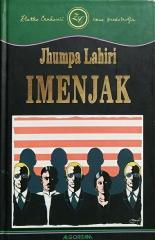
Dani zaborava
Days of Forgetting (2002), a novel by Italian mystery writer Elena Ferrante, delves into the depths of a woman's psyche through a story of sudden abandonment. For readers seeking a mirror in pain – a novel about the fall and rise of a woman in solitude.
Olga, in her mid-forties, a mother of two and the wife of a successful engineer, Mario, experiences a shock: one day, without warning, her husband leaves the family for a younger lover. "What happens, happens," Olga thinks, but reality is like an earthquake - she sinks into "days of oblivion", where time loses meaning and everyday life becomes a labyrinth of panic, rage and erotic fantasies.
Ferrante portrays the breakup mercilessly: Olga struggles with domestic chaos - sick children, unpaid bills, sexual frustration - while confronting her own demons. "I was a woman who had lost her husband, but also herself", she confesses, capturing the essence of the crisis: abandonment is not just the loss of a partner, but an existential rupture that reveals patriarchal lies, maternal sacrifices and female vulnerability. The novel explores feminism in intimacy: Olga is not a victim, but a warrior born from the ashes, faced with the taboos of madness and lust.
The image of Turin, a gray city, becomes a metaphor for closure: from apartment windows to neighborhood intrigues, where women are built on secrets. Ferrante's prose is raw, sensual – like a knife in flesh, full of the scent of fear and liberation. The bestseller that launched Ferrante's career, adapted into a film, sold in millions. It reminds us that abandonment is the path to self-preservation: "Forgetting is a lie; memory is a weapon."
One copy is available





